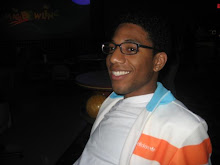
By: Marilynn Marchione and Michael Casey, Associated Press
Sept. 24, 2009 -- For the first time, an experimental vaccine has prevented infection with the AIDS virus, a watershed event in the deadly epidemic and a surprising result. Recent failures led many scientists to think such a vaccine might never be possible.
The World Health Organization and the U.N. agency UNAIDS said the results "instilled new hope" in the field of HIV vaccine research.
The vaccine -- a combination of two previously unsuccessful vaccines -- cut the risk of becoming infected with HIV by more than 31 percent in the world's largest AIDS vaccine trial of more than 16,000 volunteers in Thailand, researchers announced Thursday in Bangkok.
Even though the benefit is modest, "it's the first evidence that we could have a safe and effective preventive vaccine," Col. Jerome Kim told The Associated Press. He helped lead the study for the U.S. Army, which sponsored it with the National Institute of Allergy and Infectious Diseases.
The institute's director, Dr. Anthony Fauci, warned that this is "not the end of the road," but said he was surprised and very pleased by the outcome.
"It gives me cautious optimism about the possibility of improving this result" and developing a more effective AIDS vaccine, Fauci said. "This is something that we can do."
The Thailand Ministry of Public Health conducted the study, which used strains of HIV common in Thailand. Whether such a vaccine would work against other strains in the U.S., Africa or elsewhere in the world is unknown, scientists stressed.
The results proved the skeptics wrong.
"The combination is stronger than each of the individual members," said the Army's Kim, a physician who manages the Army's HIV vaccine program.
New infections occurred in 51 of the 8,197 given vaccine and in 74 of the 8,198 who received dummy shots. That worked out to a 31 percent lower risk of infection for the vaccine group. Two of the infected participants who received the placebo died.
The vaccine had no effect on levels of HIV in the blood for those who did become infected. That had been another goal of the study -- seeing whether the vaccine could limit damage to the immune system and help keep infected people from developing full-blown AIDS.
That result is "one of the most important and intriguing findings of this trial," Fauci said. It suggests that the signs scientists have been using to gauge whether a vaccine was actually giving protection may not be valid.
"It is conceivable that we haven't even identified yet" what really shows immunity, which is both "important and humbling" after decades of vaccine research, Fauci said.
Details of the $105 million study will be given at a vaccine conference in Paris in October.
It is unclear whether vaccine makers will seek to license the two-vaccine combo in Thailand. Before the trial began, the U.S. Food and Drug Administration said other studies would be needed before the vaccine could be considered for U.S. licensing.
Mass-producing the vaccine, plus how to proceed with future studies, will be discussed among the governments, study sponsors and companies involved in the trial, Kim said. Scientists want to know how long protection will last, whether booster shots will be needed, and whether the vaccine helps prevent infection in gay men and injection drug users, since it was tested mostly in heterosexuals in the Thai trial.
The study was done in Thailand because U.S. Army scientists did pivotal research in that country when the AIDS epidemic emerged there, isolating virus strains and providing genetic information on them to vaccine makers. The Thai government also strongly supported the idea of doing the study.





No comments:
Post a Comment